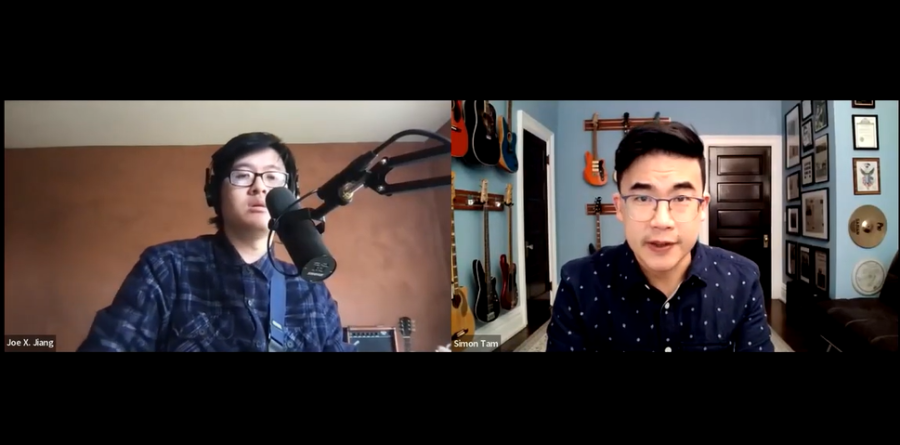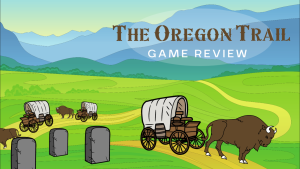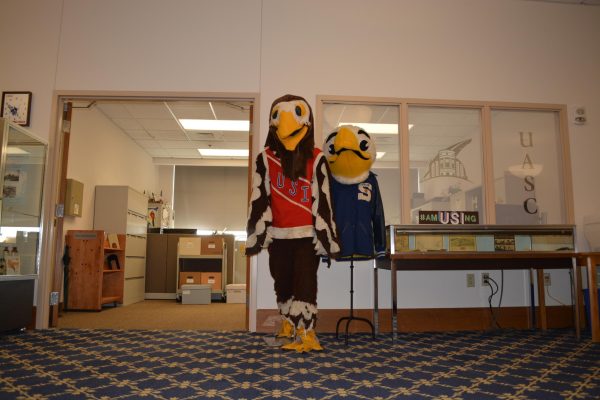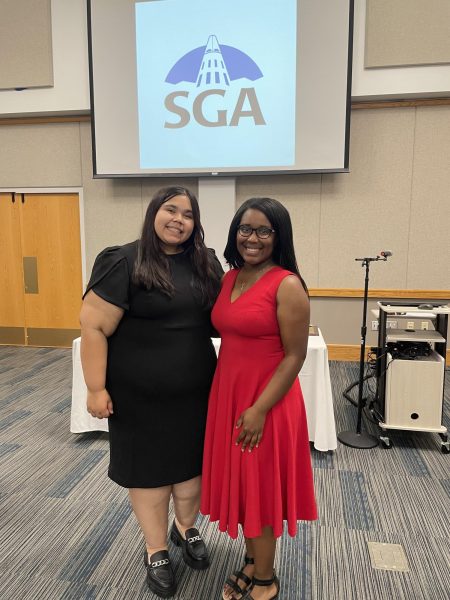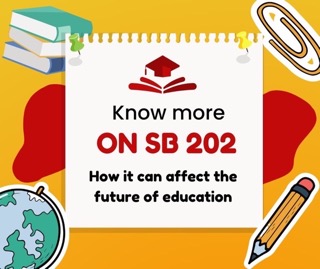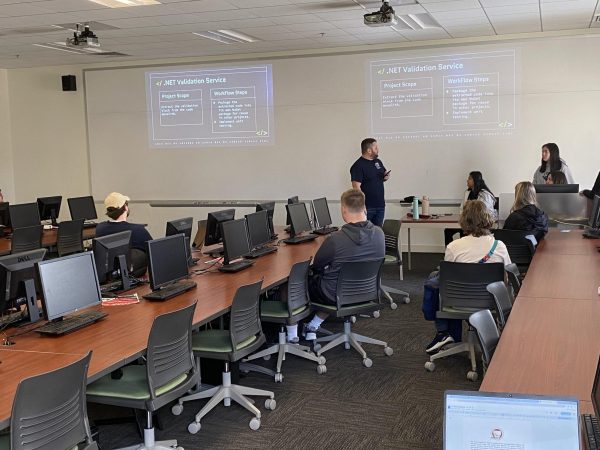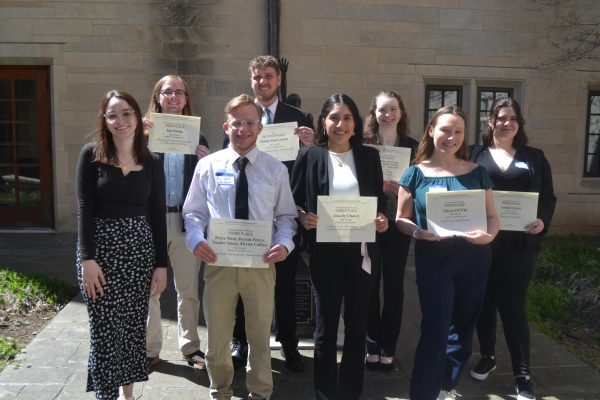Musical advocate against Asian racism speaks at USI
Simon Tam (right) and Joe Jiang (left) talk about their experiences in the Supreme Court.
March 1, 2022
An Asian man sat on the pews inside the Supreme Court, his case being told by lawyers. A label hovered over him as he sat in the pews: racist. This label went against everything he stood for, invalidating all of those years fighting for who he really was — an Asian American who wanted the best for his community.
Simon Tam, founder of the rock music band The Slants and advocate against Asian American racism, was the keynote speaker for the Mandela Social Justice Day on Thursday at 3:00 p.m. The event was hosted by the Liberal Arts Equity, Diversity and Inclusivity Committee and the Nelson Mandela Social Justice Committee.
Joining Tam for the keynote speech was Joe Jiang, former band member for The Slants. He played guitar and sang influential songs describing Tam’s journey, beginning with “This Land is Your Land.” At the time the song was written, the Japanese were locked up in concentration camps during WWII.
“I’m reminded that the land, the very earth we walk upon, is greater than the country,” Tam said. “It was here long before us and it will continue to be here afterwards. In other words, we just temporarily occupy it.”
Tam said he started his band to bring awareness to racism against Asians. He asked his friends what all Asians had in common, and the majority of the responses were “slanted eyes.”
“As a kid who was bullied, I always associated my eyes with shame, embarrassment, fear,” Tam said. “What if we could flip it? What if we could change it from embarrassment to empowerment?”
From there, Tam and his band traveled across the country playing their music, joining anti-bullying campaigns and creating diversity, equity and inclusion programs.
“I mean, it really was a dream come true,” Tam said. “Everything that I wanted since I was a kid, music and identity, rolled into one.”
Tam said this feeling changed when he was approached by an attorney to get their band trademarked. By being trademarked, they would be able to get record label deals, so Tam placed an application. The Slants were denied the application by the trademark office because they were told their band name was disparaging to the Asian community.
Tam said he decided to submit an appeal filled with evidence of the Asian community’s support of the band name. The court said this was not enough information to be “influential.”
Eventually, Tam’s case made it to the Supreme Court.
The day before the oral arguments, Tam sang The Slants’ new song, “From the Heart,” on the steps leading to the Supreme Court. He said the song was “really like an open letter to the trademark office.”
“There is power in claiming an identity,” Tam said. “Our identity is from the heart and expressing that identity is a human right.”
On the day of the oral arguments, Tam said he did not feel a lot of hope in the same system that sent the Japanese to concentration camps and banned people from China.
Tam said that changed when he heard Ruth Bader Ginsburg tell the other justices they were not using the term ‘slant’ to be disparaging but to take away the stigma of the term.
“I remember thinking, ‘Yo, I’m in love with a Supreme Court justice,” Tam said.
After leaving the oral arguments, Tam said two high school students greeted him. They said when they graduated, they were going to run for office and change the system Tam has been fighting against.
“It doesn’t matter if we win or lose in that courtroom today because we won what actually matters most in the hearts and in the minds of the people most affected by the laws,” Tam said.
“It’s really about the long game,” Tam said. “It’s about changing systems and transforming the culture.”
Finally, after the oral arguments, Tam was given the opportunity to speak to the crowd gathered at the Supreme Court that day.
Tam said, “If the government truly cared about fighting against racism, while using the trademark office to do so, why didn’t they begin by canceling the trademarks for the KKK or the Stormfront?”
A few months later, Tam received the news the Supreme Court, in an unanimous decision, ruled in favor of The Slants.
Tam said he has spent a lot of time reflecting on his journey, and he asked the audience to compare their own journey to a song. He said the bridge of a song can be thought of as a “turning point.”
“I want you to think about this evening as a bridge for where we move forward as a community or move forward as a country,” Tam said.
Tam said that by attending the Mandela Social Justice Day, students were writing the song of justice.
“You’re creating the kind of art that endures,” Tam said. “That is worth singing about.”

